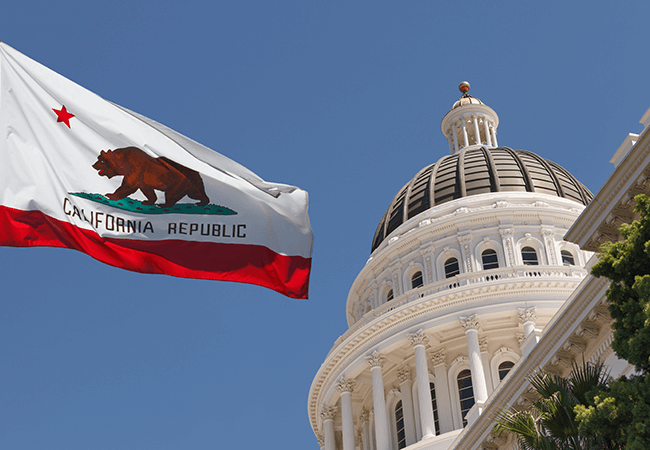
Sep 30, 2020
New Law to Improve Californians Access to Care
Consumers to Benefit from Improved Health Equity
California’s 39 million residents will have significantly improved access to care from advanced practice registered nurses (APRNs), thanks to legislation signed into law Sept. 29 by Gov. Gavin Newsom (D-CA).
AB 890, as the bill was known when it passed the California Assembly on Aug. 31, authorizes employed nurse practitioners (NPs) in defined healthcare settings to practice to the full extent of their education and training without physician supervision, after a three-year or 4,600-hour transition to practice. The majority of California’s 27,700 active NPs have at least three years practice experience, according to the California Board of Registered Nursing.
“California has been successful expanding health care coverage to many more people – and that’s absolutely what we should be doing – and we are faced with not having enough providers to care for this population,” said Assemblymember Jim Wood (D-CA), who authored the bill.
Though the law does not take effect until 2023, the pandemic might well have been on lawmakers’ minds. In California, the most populous state in the country, there are presently more than 807,000 positive COVID-19 cases and nearly 16,000 deaths due to COVID-19, according to the California Department of Public Health.
The Future of Nursing: Campaign for Action, an initiative of AARP Foundation, AARP, and the Robert Wood Johnson Foundation, as well as the California AARP State Office, plus their allies, contributed to the passage of the bill.
“California needs AB 890 now more than ever when we are experiencing a healthcare workforce shortage due to the COVID-19 pandemic,” said Nancy McPherson, state director of AARP California.
AB 890 offers consumers benefits that include:
- Helping patients find quality clinicians when and where they need one and potentially reducing travel or waiting time for health care appointments;
- Providing a pathway to eliminate administrative paperwork which could increase the amount of time NPs can spend with patients and their families;
- Eliminating unnecessary regulations to consumer access, which will help increase the supply of health care providers, increase competition, and lower patient costs;
- Expanding access to APRN care in underserved rural and urban communities hit hard by physician shortages, thanks to a provision that provides opportunities for NP entrepreneurs to open their own individual and group practices.
Campaign advisor Heather Young, PhD, RN, FAAN, professor and founding dean emerita, Betty Irene Moore School of Nursing, University of California, Davis, said, the legislation means not only better access for consumers, but improved health equity for Californians.
“As a commissioner on the California Future Health Care Workforce Commission, I came to appreciate that California is a large and diverse state, with both a shortage of primary care providers and a maldistribution of expertise, amplifying racial/ethnic and geographic disparities,” said Young, a member of the Campaign’s Strategic Advisory Committee. “Nurse practitioners are an important solution for assuring access and equity at the community level. California is known for many progressive innovations across sectors, yet, in health care we have lagged the nation in modernizing the nurse practice act to enable the highest and best contribution of nurse practitioners to the health of the population.”
Under the transition period outlined in the legislation, NPs who meet education, experience, national certification requirements can practice to the defined NP scope of practice in clinics, certain health facilities, medical group practices, home health agencies and hospice facilities. NPs practicing in their own nurse-run clinics or private practices will have full practice authority after an additional three years, though the Board of Nursing Regulation can reduce this time for those with a Doctor of Nursing Practice.
“The provisions set forth in this new law seek to recognize NPs as equal and valued members of the healthcare delivery team, and provide public transparency by codifying their legal scope of practice. Consumers have continuously called for improved access to qualified primary and specialty healthcare providers, in addition to choice of the type of healthcare provider delivering their care. AB 890 answers this call,” said Dr. Susanne J. Phillips, DNP, APRN, FNP-BC, associate dean, Clinical Affairs, University of California at Irvine, Sue and Bill Gross, School of Nursing, a lead champion of the bill.
The legislation includes a few barriers to full practice authority, such as site specific restrictions and the creation of a new Nurse Practitioner Advisory Board which requires the inclusion, but not the oversight, of physicians.
Since the Campaign began in 2010, to date nine states have fully removed statutory barriers that restrict nurse practitioners from providing more care, which in turn has increased consumers access to care. An additional eight states, including California, have made substantial improvements to increase consumers’ access to care. In 22 states and the District of Columbia, nurse practitioners are allowed to provide full care. In response to the COVID-19 pandemic, seven states (Kansas, Louisiana, Massachusetts, New Jersey, New York, Virginia and Wisconsin) have temporarily provided full practice authority to nurse practitioners. The Campaign will continue to support efforts to modernize and remove any existing these barriers to care in the future.
